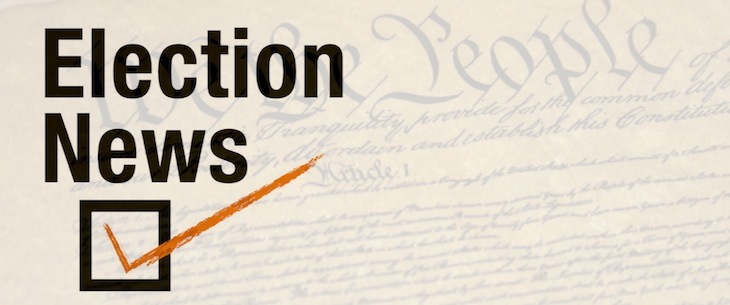Sanders wins popular vote in Nevada caucus; Biden posts best showing so far
by February 22, 2020 10:02 pm 462 views

Nevada caucus voters handed U.S. Sen. Bernie Sanders, I-Vt., another victory in the Democratic presidential primary with more than 47% of the vote. Former Vice President Joe Biden captured second place with around 23% of the vote in the Saturday caucus.
Following is the vote percentage for the top five Democratic candidates with 26% of precincts reporting. Most television networks and the Associated Press called the caucus for Sanders.
• U.S. Sen. Bernie Sanders, I-Vt.: 47.1%
• former Vice President Joe Biden: 22.8%
• former Mayor Pete Buttigieg: 13.8%
• U.S. Sen. Elizabeth Warren, D-Mass.: 9.4%
• businessman Tom Steyer: 3.8%
Former New York Mayor Mike Bloomberg was not on the Nevada ballot.
The state has 48 delegates, of which 36 are pledged delegates based on caucus results. Entering the Nevada caucus, Buttigieg had 22 delegates, Sanders had 21, Warren had 8, Klobuchar had 7 and Biden had 6.
Nevada is seen as the first primary vote among a demographic that more reflects the broader American electorate. The candidates spent time and money in the state hoping to either get a boost to their lead, or remain a viable candidate. According to the New York Times, following is the amount each candidate spent on television advertising in Nevada.
• Steyer: $13.55 million
• Sanders: $1.54 million
• Warren: $1.51 million
• Buttigieg: $1.26 million
• Biden: $1.16 million
The next primary is in South Carolina with voting day set for Feb. 29. The state has 63 delegates, of which 54 are pledged delegates awarded based on caucus results.
The Arkansas primary, with its 31 Democratic delegates and 40 GOP delegates, is set for March 3, aka “Super Tuesday.” On that date, 14 states will conduct Democratic and GOP primaries, with 1,339 Democratic delegates up for grabs, including 416 in California and 228 in Texas. To win the nomination, a candidate will need 1,990 delegates. The Democratic National Convention will begin July 13 in Milwaukee, Wisc.
